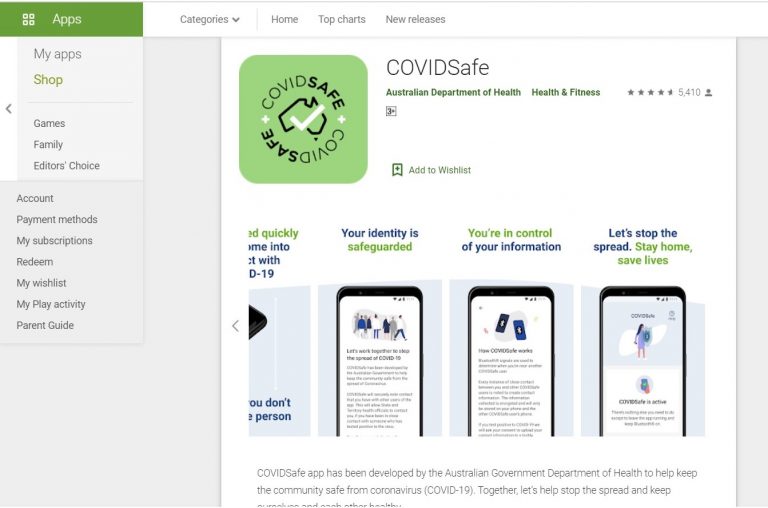
SYDNEY, April 27 (Reuters) – More than a million Australians rushed to download an app designed to help medical workers and state governments trace close contacts of COVID-19 patients, as Prime Minister Scott Morrison’s approval rating soared on his pandemic response.
Australia has been one of the most successful countries in fighting the coronavirus pandemic, recording just 83 deaths and 6,700 cases, because of border closures, movement restrictions and a stay-at-home policy. It has lowered the daily growth in new infections to less than 1%, well down from the 25% seen in March.
Australia has indicated it might lift some of the social distancing restrictions starting May 11. Morrison has said at least 40% of the population will need download the app, which allows health authorities to trace users’ movements.
Despite privacy concerns, Health Minister Greg Hunt said 1.13 million Australians downloaded the tracing app CovidSafe as of 6 a.m. (2000 GMT) on Monday, nearly 4.5% of the country’s population.

The first one million downloads came within five hours of launching the app, he added.
When asked how many people need to download the app for it to be successful, Hunt said “there is no magic number.”
“As many as possible is our real goal,” he added. “It is about assisting our disease experts find people who might have been exposed and we are well ahead of our best hopes and expectations already.”
Australia’s chief medical officer, Brendan Murphy, said the downloads would help contain the spread of the virus.
Canberra will soon begin testing people regardless of symptoms, he said, adding that it would focus on young adults.
The surge in downloads comes as a Newspoll conducted for The Australian newspaper showed Morrison enjoyed the best approval rating for a leader since the end of 2008.
Morrison’s approval rating has skyrocketed 27 points since the first week of March to 68%, the poll showed.
The result was boosted as Morrison jettisoned much of his conservative government’s ideology to pledge spending worth more than 10% of GDP, including a A$130 billion ($83.82 billion) subsidy to employers to keep staff they might otherwise have let go.
Westpac chief economist Bill Evans estimates that without the subsidy unemployment would have soared to 17% by the end of June, but would now only reach 9%.
Business groups in the country have begun lobbying for easing pandemic-related restrictions.
A modelling by the Business Council of Australia on Monday showed the A$2 trillion economy could take a A$400 billion hit if restrictions adopted to fight the spread of Covid-19 continued for six months.
Last week, the head of Australia’s central bank said the country would suffer its biggest economic contraction since the 1930s in the first half of this year due to the containment measures.
He estimated national output would fall by around 10% in the first half of 2020 with unemployment almost doubling to around 10% by June.
Despite the economic pain, Australia reported just five new cases of coronavirus across the country in the last 24 hours. Australia’s most populous state, New South Wales, said it had found just two cases in that time, and neither involved community transmission.
The states of Queensland and Western Australia have said they would ease some restrictions this week, as both have had new cases in the low single digits in recent days.
Western Australia will allow indoor and outdoor gatherings of up to 10 people, while Queensland has allowed picnics, retail shopping and drives of up to 50 kms (31 miles) from home. Queensland has also opened its national parks.
The most populous states of Victoria and New South Wales, which have the country’s coronavirus hotspots, are maintaining strict social and business restrictions.






